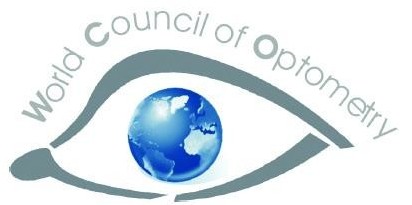World Sight Day 2013 took place on 10 October. It once again united people globally in the effort to focus attention on blindness, vision impairment and rehabilitation of visually impaired people.
 World Council of Optometry (WCO) members and partners are holding events around the world in order to raise awareness of Uncorrected Refractive Errors in the knowledge that an eye examination is the first simple step towards diagnosis and treatment for many eye conditions.
World Council of Optometry (WCO) members and partners are holding events around the world in order to raise awareness of Uncorrected Refractive Errors in the knowledge that an eye examination is the first simple step towards diagnosis and treatment for many eye conditions.
The Trinidad & Tobago Optometrists Association featured the national premiere of Joseph Lovett’s 81 minute acclaimed film, inspired by his own agonizing battle with glaucoma, “Going Blind: Coming Out of the Dark About Vision Loss”. This was followed by a panel discussion between the audience and various community leaders caring for the sight of the people in Trinidad and Tobago and the wider Caribbean region.
In the city of Makati in the Philippines vision screening training programs (VSTP) were undertaken at 3 national high schools to help identify students with poor visual activity and refractive errors and free prescription glasses were dispensed to students from low income backgrounds.
Also, in the USA, Australia, Canada, Ireland, Norway and Italy, WCO members contributed to the success of World Sight Day Challenge, the fundraising initiative of Optometry Giving Sight (OGS).
WCO supports the World Health Organization (WHO) Action Plan on Avoidable Blindness and Visual Impairment which aims to encourage better integration of eye health into national health plans and health service delivery. The World Health Organization estimates that 285 million people worldwide are visually impaired, and yet preventable causes are as high as 80% of the global visual impairment burden. 90% of blind people live in developing countries, and this needless waste costs individuals, families and communities billions of dollars every year. 42% of the global causes of visual impairment are due to Uncorrected Refractive Errors (UREs).
One of the five principles of the new World Health Organisation action plan for the prevention of avoidable blindness and visual impairment focuses on universal access and equity. Its global target, the reduction in prevalence of avoidable visual impairment by 25% by 2019 from the baseline figures of 2010, will guide interventions to ensure quality eye health is accessible and affordable to all especially those most in need.
It is the hope that as a result of World Sight Day, the optometric community continue to work together in order to increase access to comprehensive eye care services around the globe.












